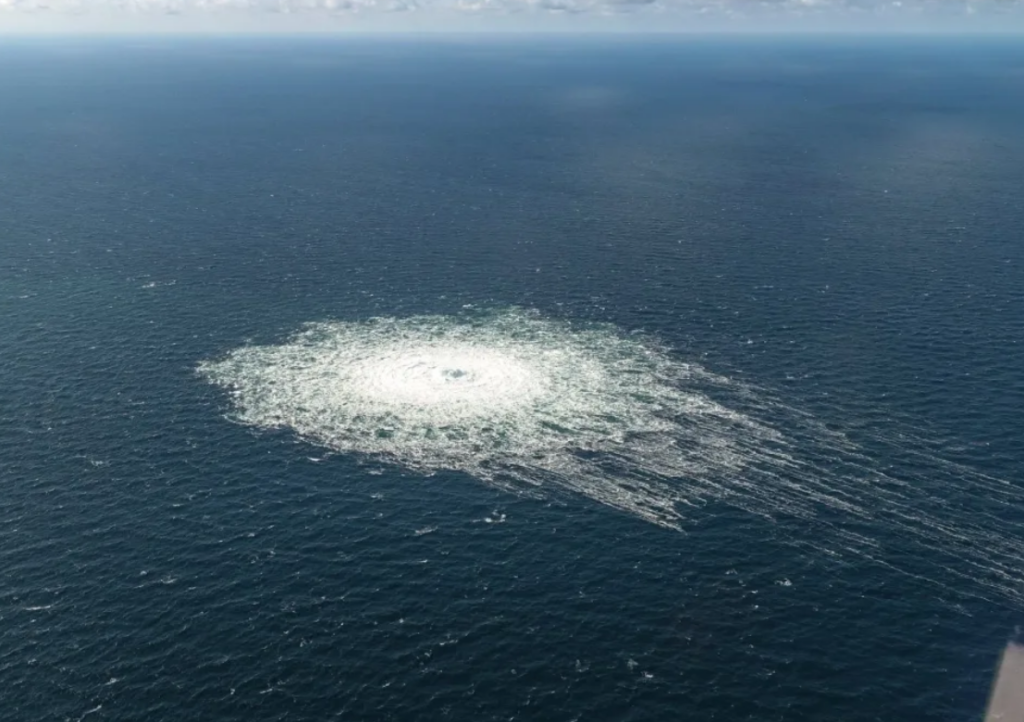The EU has dismissed the claim that the US blew up the Nord Stream underwater gas pipelines between Russia and Germany as "speculation", and stated that only an official investigation is capable of concluding who actually committed the "deliberate act of sabotage."
The claim was made by US investigative journalist Seymour Hersh on his Substack blog, with the White House also denying the reports earlier this month. The EU has now joined the US in distancing itself from the claims. "We do not comment on speculations about the perpetrators of the sabotage against the Nord Stream pipelines," European Commission Press Officer for Home Affairs Andrea Masini told Russian state media TASS on Monday.
"The only basis for any possible response can be the outcome of an official investigation. Such investigations are the responsibility of the competent authorities of the Member States concerned. And they are still ongoing. So far, it has only been established that the pipelines were destroyed by a deliberate act of sabotage."
Masini's remarks were echoed on Sunday by US National Security Council spokesperson John Kirby.
"It’s a completely false story," Kirby told Fox News Sunday. "There is no truth to it... Not a shred of it. It is not true. The United States, and no proxies of the United States had anything to do with that, nothing."
Circumstantial evidence?
Hersh, a veteran US reporter who won the Pulitzer Prize in 1970 for unearthing the story of the infamous My Lai massacre in Vietnam, alleges that US Navy divers planted C4 explosives on the pipelines during routine NATO exercises held in June last year, before remotely activating the bombs three months later, on 26 September.
Western media outlets and officials initially blamed the sabotage on Russia, although some media outlets — including The New York Times — have since expressed scepticism over this claim, noting the apparent mystery of "why, if Russia bombed its own pipelines, it would begin the expensive work of repairing them".
Hersh's reporting has, however, been widely criticised for its heavy reliance on a single unnamed source, described only as someone with "direct knowledge of the operational planning". Nevertheless, and as Hersh notes in his article, there is also significant circumstantial evidence which suggests that the US is indeed the prime suspect.
In late January — barely a month before Russia's full-scale invasion of Ukraine — Under Secretary of State for Political Affairs Victoria Nuland told reporters: "I want to be very clear with you today: if Russia invades Ukraine, one way or another, Nord Stream will not move forward."
Related News
- 'Humanity is dedicated to its own destruction' – Noam Chomsky
- EU and NATO announce 'joint taskforce' to protect critical infrastructure
Nuland's remarks were echoed just days later by US President Joe Biden. "If Russia invades — that means tanks or troops crossing the border of Ukraine — again, then there will be no longer a Nord Stream 2," Biden said during joint a press conference with German Chancellor Olaf Scholz. "We will bring an end to it... I promise you, we'll be able to do it."
In a press conference held just days after the explosion, US Secretary of State Antony Blinken described the sabotage on three occasions as offering a "tremendous [strategic] opportunity". His remarks were echoed earlier this year by Nuland, who said during a Senate hearing that "I am, and I think the administration is, very gratified to know that Nord Stream 2 is now... a hunk of metal at the bottom of the sea."
Such remarks are not limited to US officials: in the incident's immediate aftermath, former Polish Foreign Minister and current Chair of the European Parliament's Delegation for Relations with the United States Radek Sikorski took to Twitter to explicitly thank the US for blowing up the pipelines.
In a subsequent interview with The Brussels Times, Sikorski suggested that his tweet had been "over-interpreted".

